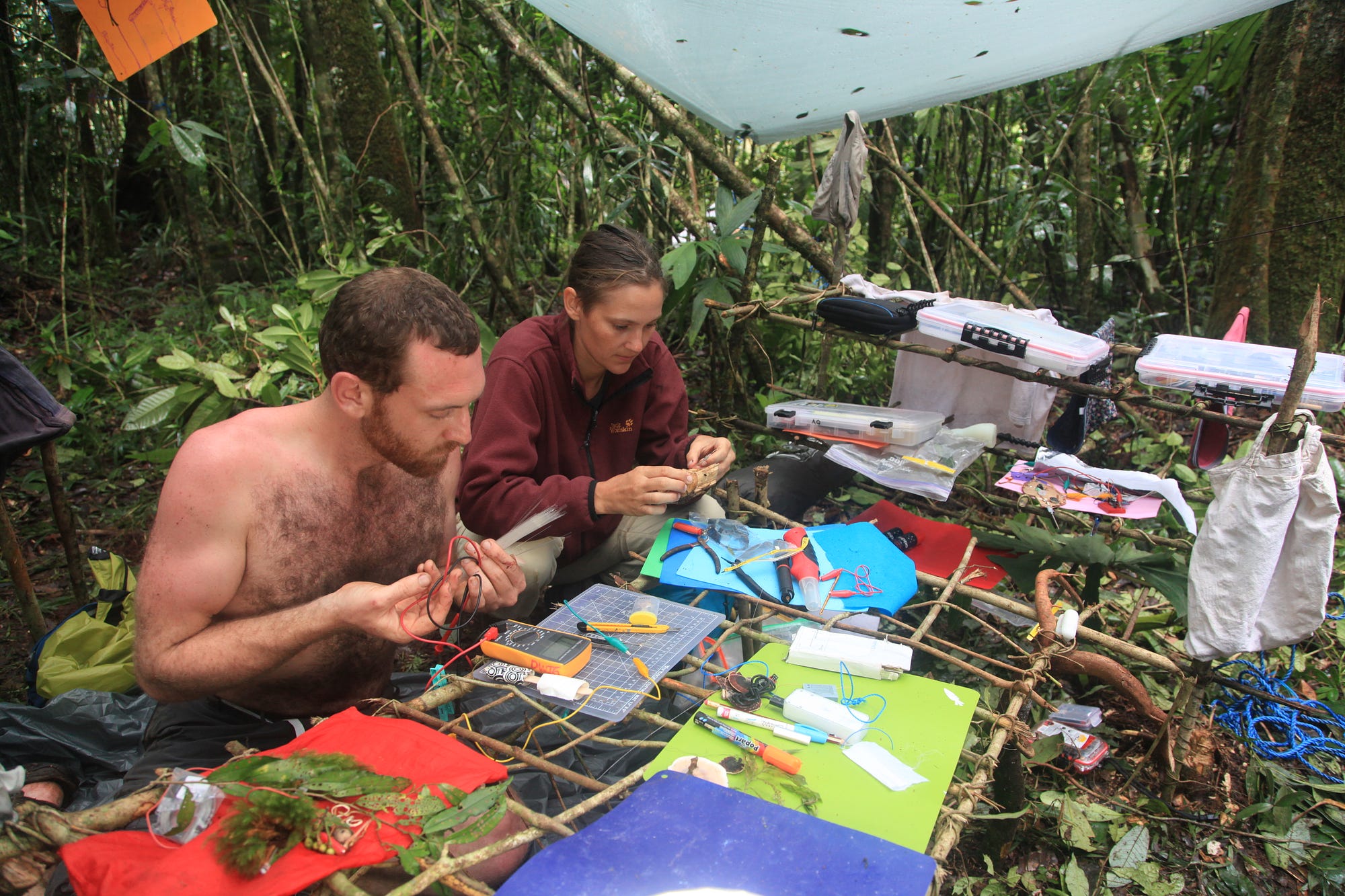Andrew Quitmeyer’s node will incorporate concepts and activities from his work in Digital Naturalism. The goal is to discover ways that DIY technology, created in the wild, can let us explore nature in new ways. The key relationship in this work is between field biologists (of any level) and technologists (of any ability), thus many of our activities will involve hybrid artistic and scientific examinations of the wilderness surrounding us. For instance we may develop biological tools for studying nearby creatures, and then adapt these into artistic devices for continued exploration and sharing of this phenomena.

Helping lead our investigation will be Digital Naturalism’s four main design guidelines (illustrated examples here).
The first is Behavioural Immersion, and looking at projects and activities that connect our senses and actions to those of wilderness creatures. For example, participants might be interested in making wearable scientific probes can map our senses to the activity of nearby ants, or birds, or fish.
Open Endedness encourages creating tools for general exploration increasing chances of serendipitously stumbling across interesting new phenomena. Making simple capacitive touch sensor probes that we can connect to nearby flora, for instance, lets us openly poke and probe novel questions in the environment. We might also program generalised tools, such as robotic arms, to poke and probe different ecological systems in multiple ways.
Technological Agency seeks to ensure our tools are open, understandable, and manipulable. By making our own devices together, and taking apart, or modifying existing tools, we can increase our collective ability to extend ourselves with these tools.
Finally, Contextual Crafting encourages shrinking our gap between the workspace and where we employ the objects we create. At PIFcamp we will, of course, be building our tools and devices in nature, and we will also be studying ways to harmoniously adapt workspaces to various natural features. Creating light-weight, transformable organisation units, and modular work surfaces that can be carried, or even incorporated into one’s clothing, is a goal we continually work on. Adaptable, portable, and wearable studios also lend themselves to exploring less utilitarian (and more fun) designs for keeping tools always close at hand.
No previous experience in anything is necessary, just be alive and excited.